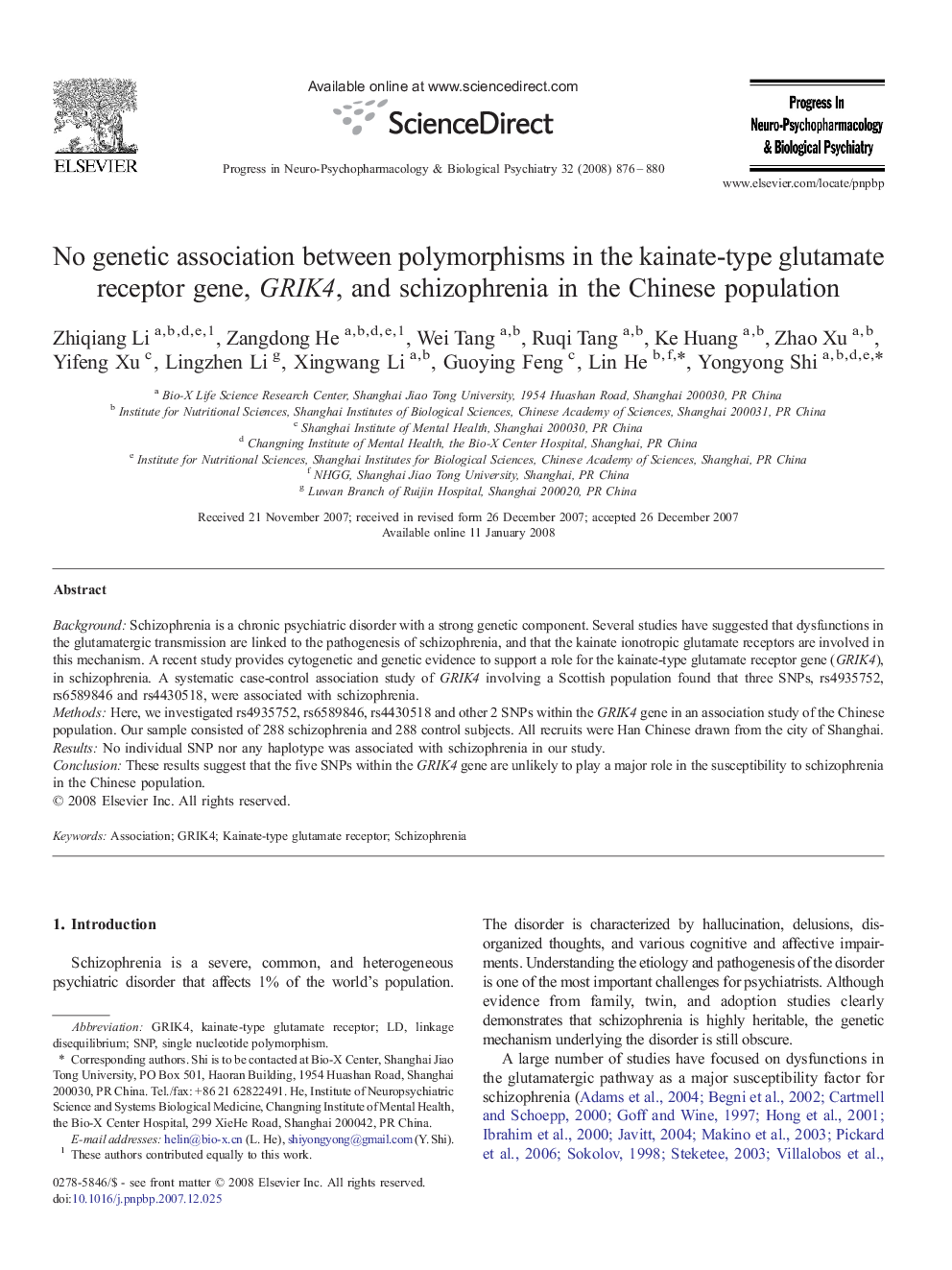| Article ID | Journal | Published Year | Pages | File Type |
|---|---|---|---|---|
| 2565873 | Progress in Neuro-Psychopharmacology and Biological Psychiatry | 2008 | 5 Pages |
BackgroundSchizophrenia is a chronic psychiatric disorder with a strong genetic component. Several studies have suggested that dysfunctions in the glutamatergic transmission are linked to the pathogenesis of schizophrenia, and that the kainate ionotropic glutamate receptors are involved in this mechanism. A recent study provides cytogenetic and genetic evidence to support a role for the kainate-type glutamate receptor gene (GRIK4), in schizophrenia. A systematic case-control association study of GRIK4 involving a Scottish population found that three SNPs, rs4935752, rs6589846 and rs4430518, were associated with schizophrenia.MethodsHere, we investigated rs4935752, rs6589846, rs4430518 and other 2 SNPs within the GRIK4 gene in an association study of the Chinese population. Our sample consisted of 288 schizophrenia and 288 control subjects. All recruits were Han Chinese drawn from the city of Shanghai.ResultsNo individual SNP nor any haplotype was associated with schizophrenia in our study.ConclusionThese results suggest that the five SNPs within the GRIK4 gene are unlikely to play a major role in the susceptibility to schizophrenia in the Chinese population.
